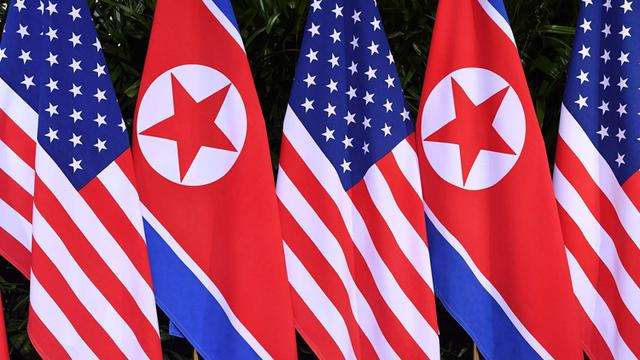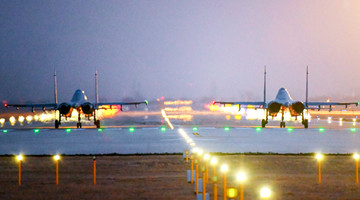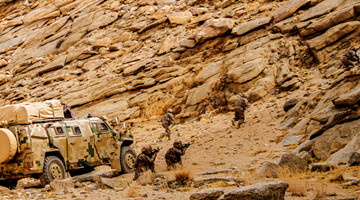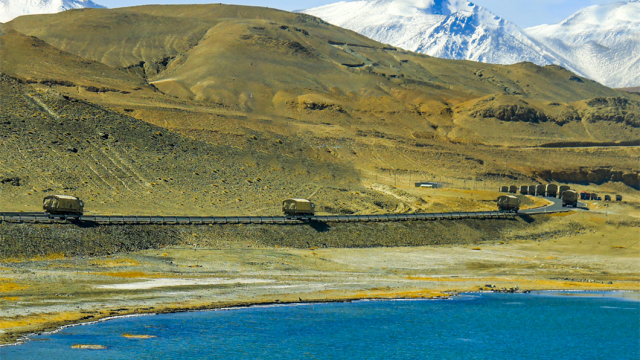
After keeping silence for nearly a week, the Democratic People’s Republic of Korea (DPRK) eventually responded on December 16 to the US new sanctions on three DPRK high-ranking officials, denouncing the move a “provocative act.”
The Korean Central News Agency (KCNA) reported on December 16 that the DPRK’s Ministry of Foreign Affairs released a statement under the name of the policy research director of the Institute for American Studies.
The statement said that over the past six months since the US and DPRK leaders met in Singapore, Washington had taken sanctions measures for several times against the companies, individuals and vessels of not only the DPRK but also some third countries under the pretexts alleging that Pyongyang carried out money laundering, illegal shipping and cyber attacks.
Recently, the US administration made a further “provocative act” to add DPRK officials onto its sanction list for alleged “human rights abuses,” according to the statement.
The statement also noted that threatening, intimidation and suppression could never be the way out, and the DRPK proposed the two sides build mutual trust and start with things that are currently possible to improve their relations step by step.
On December 10, the US Treasury Department announced sanctions on three DPRK officials, including Choe Ryong Hae, director of the Organization and Guidance Department (OGD) of the Workers’ Party of Korea (WPK), alleging that the departments under their jurisdiction involve abuses of human rights.
According to Wang Junsheng, an associate research fellow of the National Institute of International Strategy under the Chinese Academy of Social Sciences (CASS), the US increased pressure on the DPRK by imposing sanctions on its high-ranking officials such as Choe Ryong Hae, member of the Presidium of the Political Bureau and vice chairman of the Central Committee of the WPK, evidencing that Washington has never changed its “maximum pressure” policy against the DPRK.
Particularly, against the backdrop that the second Trump-Kim summit becomes a hot topic among the international community, Washington sent the signal asking Pyongyang to take substantive steps towards denuclearization.
Wang remarked that on one hand, the US direct sanctions on top officials like Choe Ryong Hae are “unacceptable” for Pyongyang, so the latter must seriously expressed its discontent for Washington, and on the other hand, the DPRK is taking active actions to promote economic development and thus hopes to break the ice in its relations with the US. In fact, it does not want the trend of peaceful dialogue to reverse. Perhaps this explains why Pyongyang didn’t respond until nearly a week after the US announced the new sanctions.
Wang also commented that the US and the DPRK have fundamental differences in the sequence of security guarantee and sanction removal as required by the DPRK in the process of achieving substantive denuclearization on the Korean Peninsula.
The new sanctions result in a setback for recent interactions between the US and the DPRK, and signal that their contradictions are likely to escalate. This move may also be a bargaining strategy taken by Washington in its negotiations with Pyongyang.
In 2018, the hope for political settlement of the nuclear crisis on the Korean Peninsula has been rekindled, with its ups and downs drawing great attention from the international community. At the end of this year, however, the situation got complicated again, adding uncertainties to the second Trump-Kim summit advocated by the US side.
Even if they are facing intransigent fundamental differences, the US and the DPRK shouldn’t slammed the brakes on bilateral ties that has just been accelerated. They need to point themselves in the right direction and show sincerity to improve bilateral relations. In view that the two sides already lack mutual trust, vacillating attitudes can only make the situation worse.
What breakthroughs will be made in the nuclear crisis on the Korean Peninsula in the coming year? Let’s wait and see.
Disclaimer: The article was published on the PLA Daily on Dec. 18. It is translated from Chinese into English and edited by China Military online.









